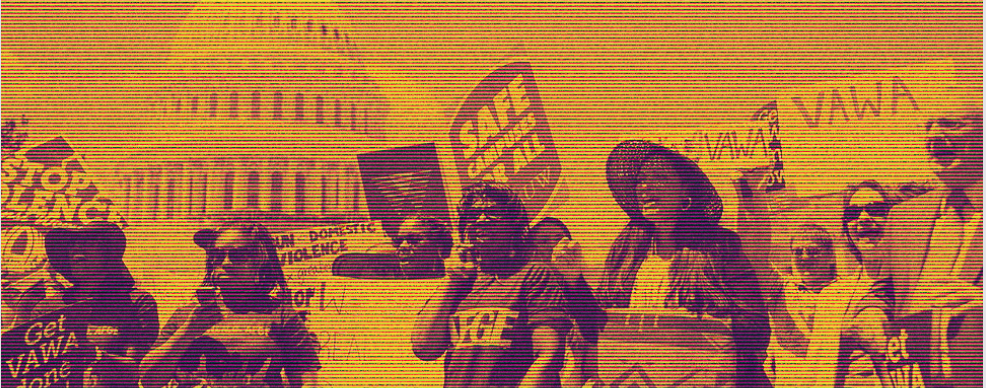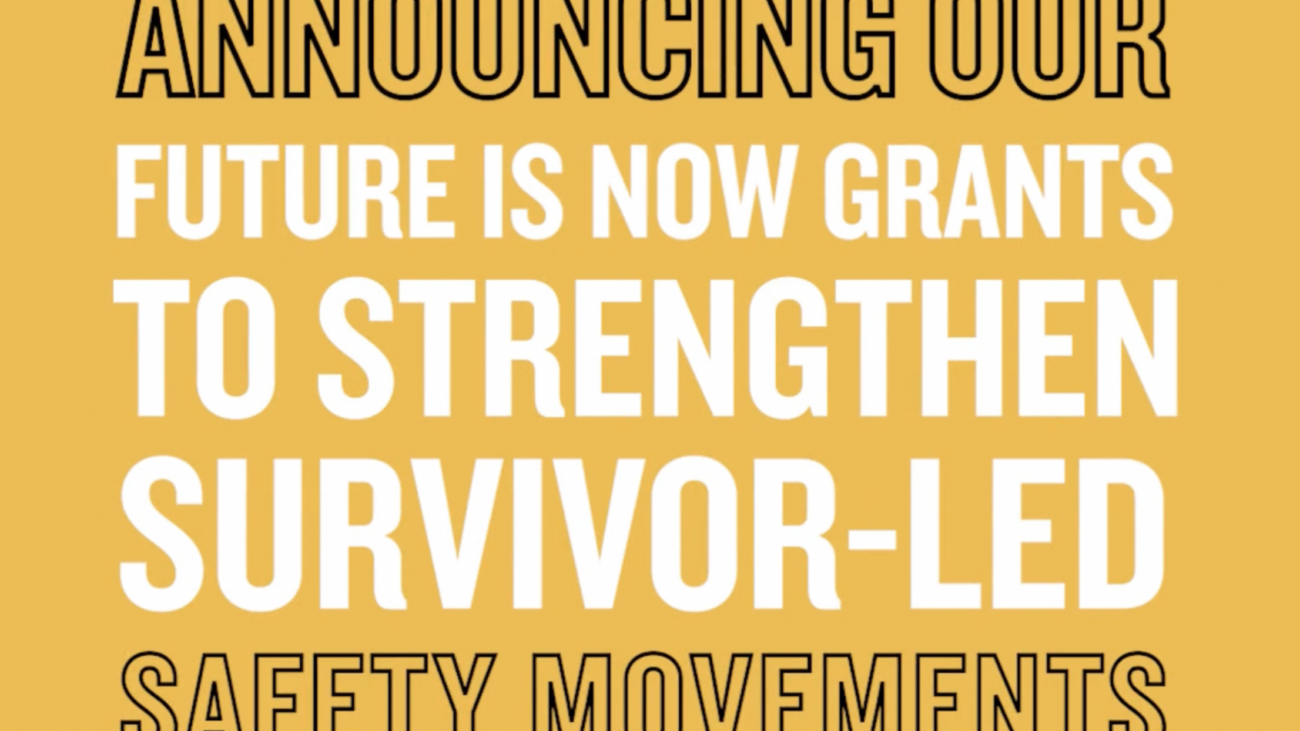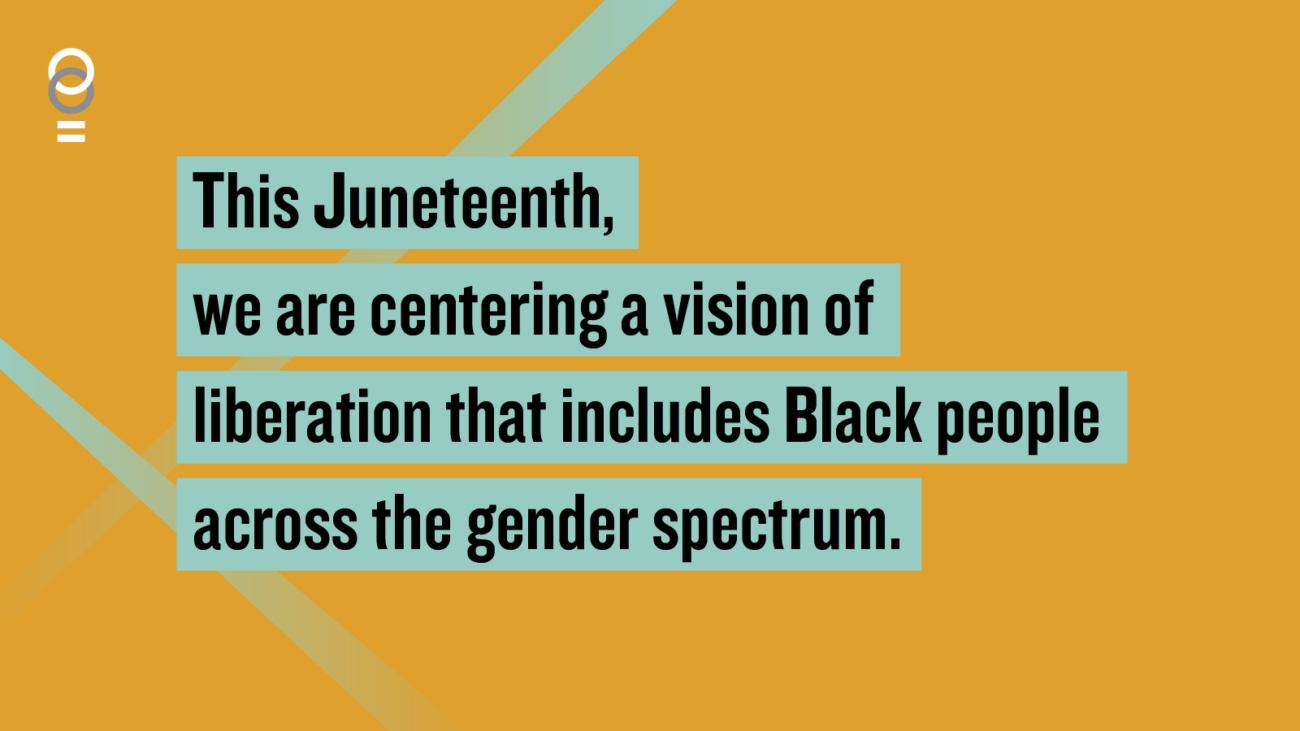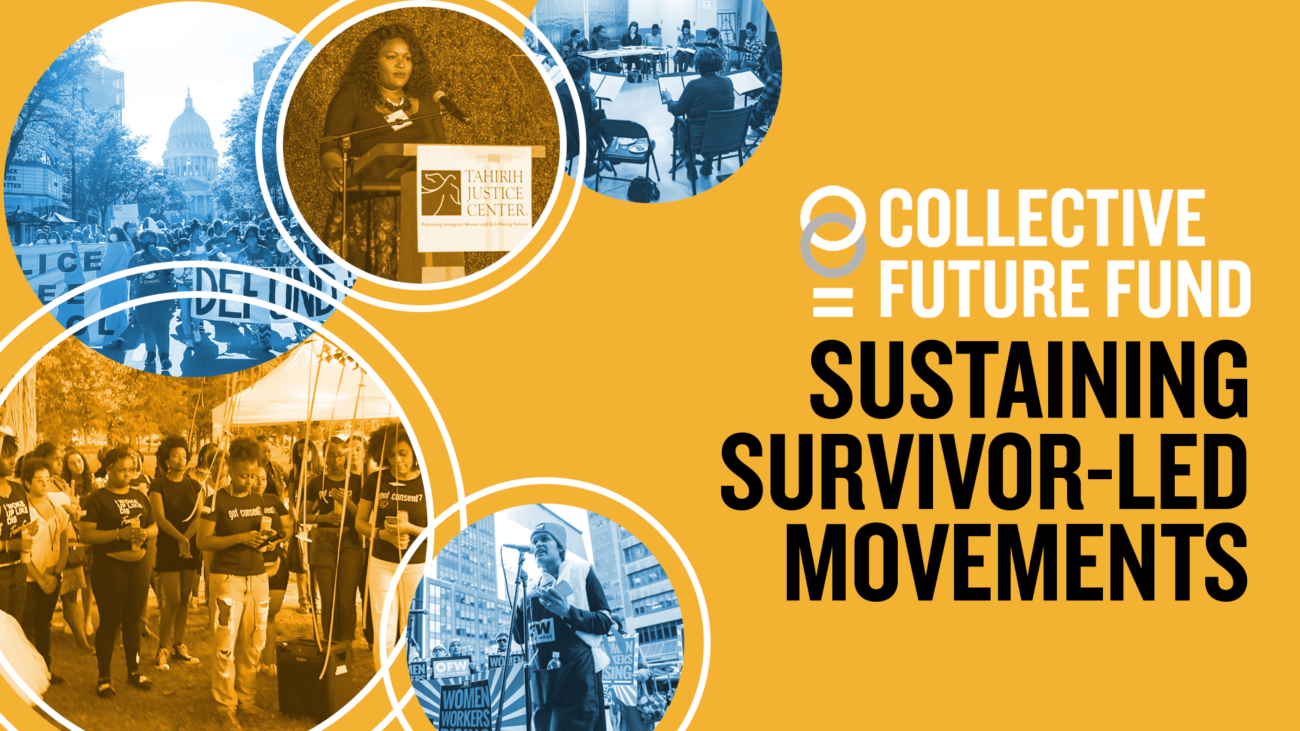The 19 grant recipients, all with budgets less than $1 million, are shaping the future of Black, Indigenous, Latinx, South Asian, Muslim, Arab, queer, trans, gender non conforming and non-binary survivor-led safety work
NEW YORK – Today, the Collective Future Fund (CFF) announced 19 grassroots organizations have received grants as part of their new $1.2 million Future Is Now grant-making effort. The grants invest in organizations with budgets under $1 million as they expand their culturally responsive programming to build power and address root causes of violence, with a strong focus on trans-led organizations and organizations building innovative healing and safety practices. The grantee partner organizations are Black, Indigenous, Latinx, South Asian, Muslim, Arab, queer, trans, gender non conforming and non-binary survivor-led, reflecting the Collective Future Fund’s commitment to supporting the leadership of these key communities who are most impacted by racialized, sexualized, and gendered violence and also powerfully leading some of the most significant issues of our times.
After announcing multi-year grants in March of this year totalling $11 million, the Collective Future Fund’s Future Is Now prioritized organizations that are creating innovative strategies to end violence with creativity, resistance, and resilience. Recognizing that the crises of the past 18 months will not easily subside, particularly as survivor-led movements experience repression after hard-fought wins, investment ahead of the new year is critical.
Violence Against Trans Communities Is at an All Time High.
This year has continuously undermined LGBTQ+ rights, with increased violence specifically targeting the trans community. 2021 is set to be the deadliest year yet for trans or gender non-conforming people, with the majority of those killed (60%) being Black trans women. According to the Prison Policy Initiative, twenty two percent of trans people who interacted with police reported being harassed due to bias—and when incarcerated, 40% of trans people experience sexual assault. Despite the growing violence against trans people, both racial justice and broad gender justice funders lack a firm commitment to providing resources to communities that are vulnerable to xenophobic and transphobic attacks. Even though the deadly outcomes of systemic racism were laid bare last year with the killings of George Floyd and Breonna Taylor, many Americans are still failing to see the connection between our country’s long-standing inequities and the conditions trans communities face today. In addition to the high rates of domestic and sexual violence, trans and non-binary people are also targets of extreme state violence. Preventing violence against these communities requires us to be groundbreaking and proactive with our approach and support of trans and non-binary people.
A central part of CFF’s strategy in supporting and growing this movement is investing in Black trans communities. The Future is Now Fund prioritizes Black trans-led organizations that are too often unseen and under-resourced by philanthropy by increasing the availability of life-changing resources.
Trans Led and Focused Organizations Are Ignored by Philanthropy
“To create a future free of violence we address the ways that transphobia and anti-blackness work within philanthropy, we have to do more than fund them, especially when we know that this lack of resourcing leads to continued violence,” said Aleyamma Mathew, Director of the Collective Future Fund. “We must strategically support organizations with smaller budgets that are expanding and examining solutions to racialized, sexualized, and gendered violence. The future will be – and already is – shaped by BIPOC trans survivor-leaders.”
As the country continues to reconcile the pandemic’s impact, and as survivor-led movements continue to take their fight to the forefront, philanthropic support is needed now more than ever. For every $100 awarded by the U.S. Foundations, less than 3 cents benefits trans communities, leaving organizations that focus on trans and gender expansive folks on their own. Black-led trans organizations are not only more proliferated and can help ground a movement, they are also some of the less resourced because of the ways that intersectional anti-blackness, transphobia and systemic discrimination collude to continue to strip power, resources and rights.
If we are to dismantle systems of violence, we need to reinvest energy into innovative ideas. The bold transformation we wish to see can be achieved by pushing trans and non-binary power from the margins to the mainstream.
CFF Is Reimagining Philanthropic Work
Collective Future Fund is innovating the field and building a new model for grant-making by supporting survivor led movements. In addition to funding trans-led organizations, CFF is working to ensure that the organizations who adapted and innovated healing and safety practices in response to the COVID-19 pandemic, are able to thrive and build for a sustained future.
“Building a future where all of our people can heal, grow, and thrive as their best and full selves is the reason why we do this work,” said Monica James, Executive Director from grantee partner Triumphant Together. “We’re building resources to support this transformation on a new blueprint that actually serves our community’s needs. We are so appreciative to have funders like the Collective Future Fund invest in this work and really stand beside us as allies and collaborators.”
“Our work is grounded in survivors – survivor leadership, survivor experiences, and survivor healing,” said Kristin Welch, Executive Director of Waking Women Healing. “As Indigenous women, girls, and two spirit people, we are reclaiming power over our futures and over self in mind and body, free from settler and gender-based violence, with access to healthy Waters and respectful connection to Mother Earth for all beings. We truly value the opportunity to do this work in community with Collective Future Fund and all their partners.”
Future Is Now Grant Recipients
For more information about the Collective Future Fund, visit their website at https://www.collectivefuturefund.org/
###
Collective Future Fund works with philanthropy and visionary changemakers to build a collective future where all women, girls, trans, gender non-conforming, and nonbinary people and survivors of color are not only safe from state, workplace and interpersonal violence, but live in shared abundance, joy, and power.




